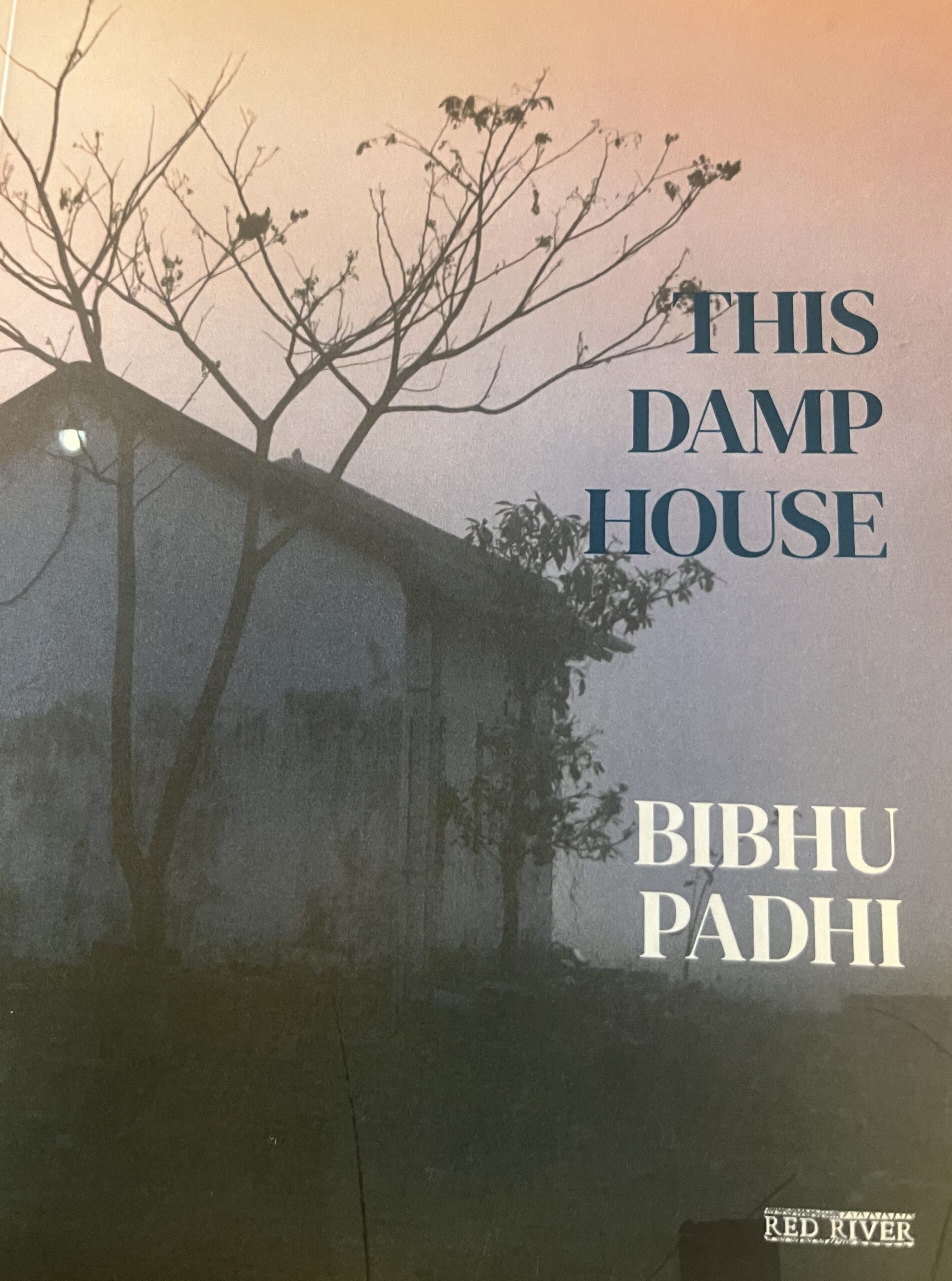REVIEWED BY AMANITA SEN
“Strange as it may seem today to say, the aim of life is to live, and to live means to be aware, joyously, drunkenly, serenely, divinely aware. In this state of god-like awareness one sings; in this realm the world exists as poem. No why or wherefore, no direction, no goal, no striving, no evolving.”
–“Creative Death” by Henry Miller
What one can never miss while reading a Bibhu Padhi poem is the stark simplicity of the words. There will never be a word which can stop the flow of reading for the rarity of its usage. Yet those innocuous words can most effortlessly build an imagery, a metaphor that is bound to have a lasting impression on the readers’ minds, inspiring them to explore a new realm of understanding that gradually gets revealed.
The poems, from this Red River Publication This Damp House bring in our minds the eternal question of the purpose of art and creativity and one seems to know after having finished reading them how each strain of thought shared by the poet seeps inside our own mindscapes and begins a journey of its own. With the poems it is not only a walk in the known terrains of joy, grief, longing, sorrow but also a few unexplored ones, that have no labels yet.
In the poem, “Grief Leaf” (46) the poet writes,
“Someone is looking for
a shelter in the middle of
the world of everyday pains –
someone I used to know once
a long time ago, when
together we prayed.
Since then the temple stones
have fallen like leaves
struck by grief after grief.”
The imagery of grief falling off like temple-stones bears the mark of a true poetic vision.
One of the blurbs written by Jayanta Mahapatra reads “Bibhu Padhi awakens us with his intimate sense of belonging, of quiet comfort with the world in which he lives.”
The poems handhold the readers inside this world comprising of the sea, the sand, grandmother’s fingers that tend the plants, the song of the winds passing through the leaves of Casuarina and an all-encompassing silence that prevails upon all of these and more.
Awakening the reader to the experience of a sleepless night in the poem “Sleep’ (50) he writes,
“How does one converse
With the endless nights?
Perhaps in an ancient tongue,
known only by a few or none at all.”
By personifying the night the poet opens up a whole gamut of possibilities for the reader to befriend the quietest time of the diurnal turn and thus be closest to one’s own self, urging to ask questions, retrospect, pray .
“I speak to the night
in its own language,
packed with metaphors of change.”
When life metes out to us the unfavorable turn of events how often we ask the question “why”.
We find the resonance of such thoughts in the poem “There are no answers.”( 71)
“We must wait for
the very end of things,
For the savage laughter of the Gods
inside the shrewd shrines.
We politely ask, “Why?”
The sea is the recurrent theme for Padhi’s poems, who is the resident of the beautiful state of Orissa that is flanked by the Bay of Bengal on one side. The poet wishes to be part of the chronicles of the sea as is expressed in these lines from the poem” The Bay of Bengal, Once Again”
“Now I’m with the bay, as it describes
itself into my eyes and ears, its waves
rising and falling on the level of the sand.
A glimpse of its history has stayed
with me and I’ve gone through
birth after birth, as if to be born
was the only way I could be inside
chronicles from its autobiography.”
The lines resonate with the universal feelings of finding refuge in the concept of vastness of the sea and thus being part of the greater design, alleviating us from the ordinariness of our immediacies.
The sea can be the most indifferent entity.
“Birds hover above the lagoon
that belongs to the Bay of Bengal;
they know nothing, attached to nothing.
The turtles are washed ashore
by the sea-water, awaiting a returning
wave to move into the sea again.”
These lines from the poem “A vanishing act” (74) remind the readers of the inevitabilities of departures in our lives that often reappear in some thought, some memory some time later.
“Everything vanishes again
into a thought that reemerges
like the dolphins at a distant blue.”
The cover-image photograph by Budhaditya Padhi, of a lone dark house standing in company of scantily leafed trees paints the picture of desolation that rightly complements the title of the book, sharing the same title as the last poem “This Damp House” (93)
“Who built this house?
Whose imagination
is still haunting the house
like a chronic disease?
There are no answers.
Only the smell of damp airs
enters the body of whoever
enters the house, sticks
to the available skin.
Reading good poetry could be a sensory experience, or even a spiritual one where the word ‘spiritual’ denotes a free expanse of the mind for a being to merge into and this slim volume of poems, never preachy in their tone, promises, if not much, a shift of paradigm, thought-wise and for all those time-beaten souls , a calmer mind.
Also, read a book review of I’m Your Poet: Selected Poems by Nilim Kumar , reviewed by Aritra Sanyal, and published in The Antonym:
Follow The Antonym’s Facebook page and Instagram account for more content and exciting updates.




























Beautiful 😊😊👌🏽